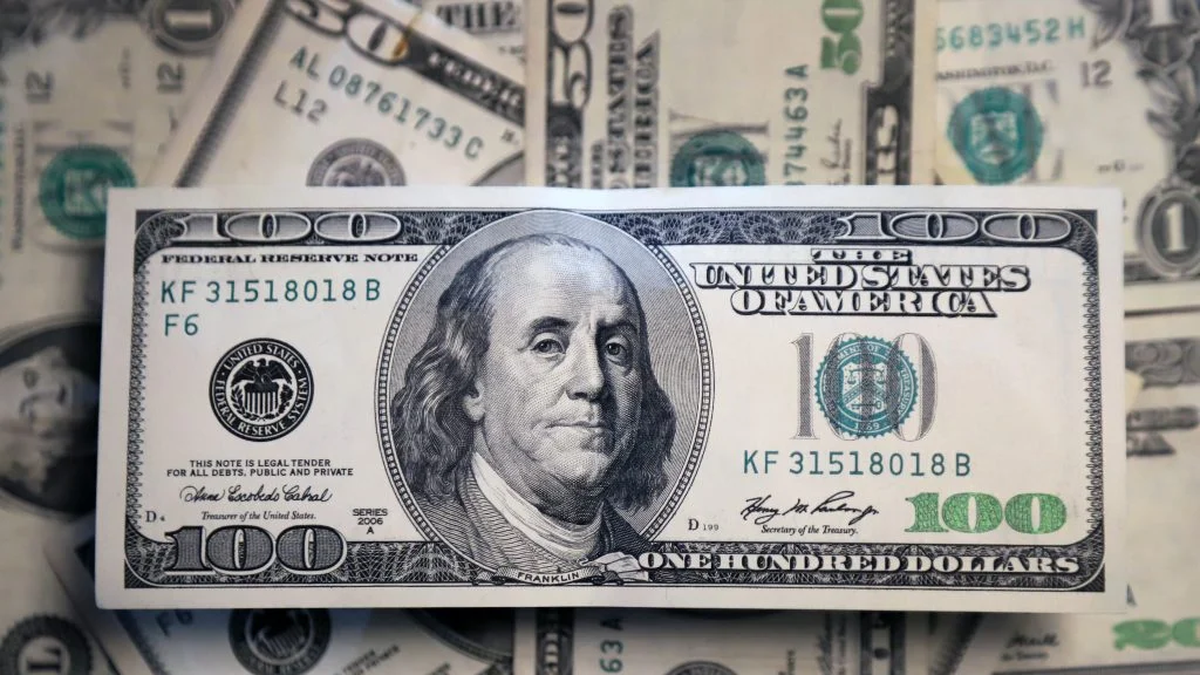Regarding the COUNTRY Tax, he said: “Indeed, from 17 to 7 and a half. That, now, when the law is finished being regulated and the income begins to flow, from that moment, once you clear that effect, that reduction begins to apply. When you You have everything working, that’s a cash issue. So, it’s automatically taken out later. Yes, but there are operational issues, I don’t know that it could be in August, I guess. regulate it, but you also need it to be working. “It’s a cash problem.”.
The President assured that “the zero deficit stage has already passed,” while highlighting that “the change in the monetary regime is coming.” Furthermore, he confirmed that Federico Sturzenegger “will join the Cabinet next week.”
Weight vs. dollar: Is a devaluation coming?
The President avoided putting a price on the dollar. In fact, Milei assured that he is not worried about the dollar. And in addition, he reiterated that they continue to make progress in eliminating the exchange rate, although there is no date yet. The latest speculation was that it would be towards the end of the year.
Regarding fluctuations in the price of the dollar and country risk, he said: “Today you do not buy dollars freely, that is, we still have restrictions. So, you buy dollars through an indirect means, that is, you buy them through bonds. The problem is that the bond is an indirect mechanism, so the dollar is not only reflecting the issues that have to do with the dollar, but at the same time it is reflecting issues that have to do with the bond. The truth is that the conduct of some deputies, with such a vocation to destroy the fiscal balance, when we had the risk in the area of close to 1,150, they managed to make it go up to 1,600. That contaminates the perception of the intertemporal solvency of the economy and impacts the price of bonds, which makes them fall, and the country risk, the fiscal degenerates, took it to 1,600. The flip side of that is that it also manifests itself as a higher dollar.”
“That’s one issue. The second is that, in this period, again, you have the period where we lose foreign currency seasonally. Some people made a reading that this was a problem and, in reality, it is part of the seasonality. It’s like saying that there is a problem because, Antonio, it’s cold in winter. It’s almost like stupidity, but, well, that’s the quality of analysts that we have. And the other thing that I also find interesting to take into account, which is what is explaining these movements, is that you paid the half bonus, and people tend to… Therefore, it doesn’t worry me,” he said.
He added, regarding the value of the dollar, in response to opinions that it is outdated and that a faster rate of devaluation is required: “Let’s suppose that it were not competitive. How would that be fixed? By devaluing? Well, that would be nonsense.”
What will happen with the dollar restriction?
Asked when he plans to lift the dollar restriction, Milei replied: “If I were a dictator I could give you a date, but I am not a dictator, I am a liberal. And if you look closely, each of these processes has implicit decision-making by individuals. So, the faster, for example, people want to convert to currency, the faster the process is, but that depends on the people.”
On the other hand, consulted on LN+ about the dollarization, He said that this will happen “naturally” in the context of “currency competition.” “The peso is not going to disappear, but what we have to do is stop it from growing,” he said. And he concluded: “From my point of view, I would like to take it out, so as not to issue it.”
“We are working on a solution, which is why it is so important. I would tell you, honestly, that the task of Bausili and Pablo Quirno is monumental because they are recreating an entire curve of pesos. Recreating that curve of pesos makes those remunerated monetary liabilities, which should never have been in the Central Bank, return to where they should have been, which was in the Treasury. Because the flip side of that is the 45 billion dollars that were stolen from the Central Bank by the previous government,” he also stated.
The reduction of inflation, according to Javier Milei
Regarding inflation, Milei considered that “the trend continues to be downwards”, although he acknowledged that the process may have rebounds while relative prices adjust. It should be noted that for June, the consulting firms estimate that it was close to 5%, somewhat higher than the 4.2% in May.
“There are some very interesting things about the way we have built the disinflation process. For me it is always relevant to consider it in terms of wholesale inflation, which is what leads. So, if you look, in December we had a wholesale inflation of 54%, that annualized gives you an inflation of 17,000%. If you take the inflation of the last month which was 3.5%, that annualized gives you 50%. Strictly speaking it gives you 51%, but I am rounding off. The truth is that the achievement of lowering inflation from 17,000% to 50% is enormous,” he said.
He also referred to the level of economic activity, and said that “there are grounds for us to begin a solid recovery.” “There are several elements at play here. The first issue is that you come from an economy that for twenty years was eating up capital, therefore, with little capital in the economy, this translates into very high levels of productivity. This means that projects in real terms have very high returns; that is a trigger for investment. That is the first point. The second is that you have a rebound effect. In other words, you had panic; people in panic do not consume, they withdraw, when the panic is over they begin to expand as well. In addition, you have a recomposition of real wages and pensions that are winning against inflation.”
“Not only that, with which you have an effect from the supply side and from the demand side. And, on the other hand, one of the things that is very important, the displacement of the public sector in the economy, the Public spending in real terms fell 30%. That is, and, in addition, that implied a fiscal saving of 15 points of GDP. That saving now returns so that people can use it, not so that the treasury is eating it. This is not a minor issue because the interesting part of this is that in December we were discussing the hyper and today we are discussing mortgage loans. I mean, it seems to me that as a change in the axis of the discussion it is not trivial,” he concluded.
Source: Ambito
I am a 24-year-old writer and journalist who has been working in the news industry for the past two years. I write primarily about market news, so if you’re looking for insights into what’s going on in the stock market or economic indicators, you’ve come to the right place. I also dabble in writing articles on lifestyle trends and pop culture news.




